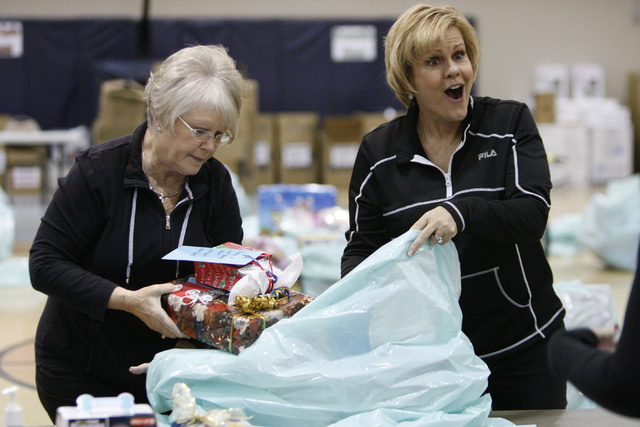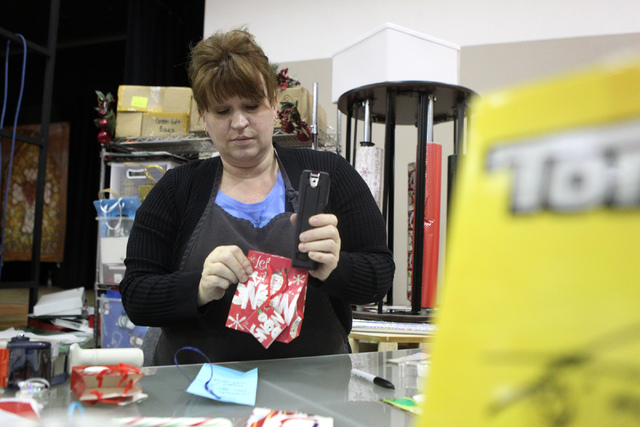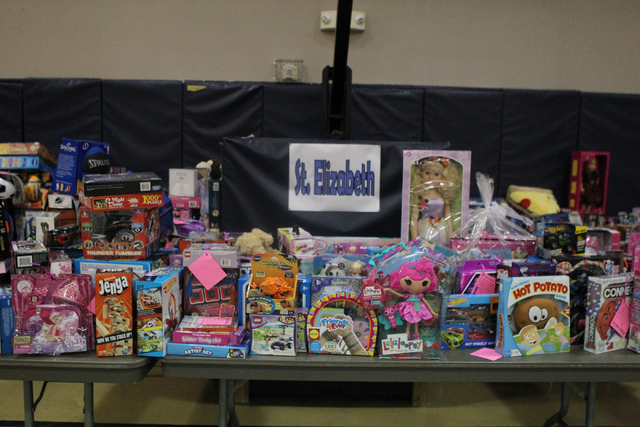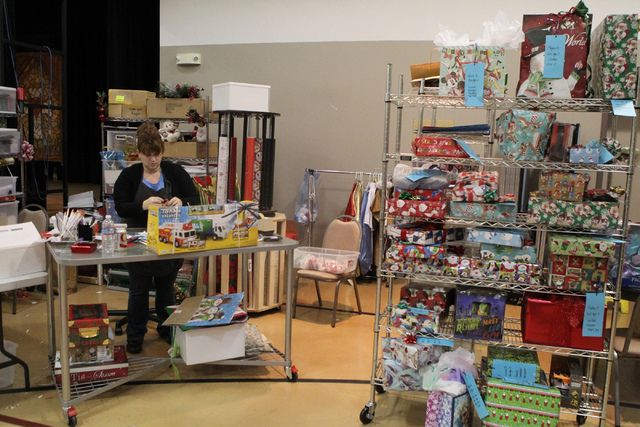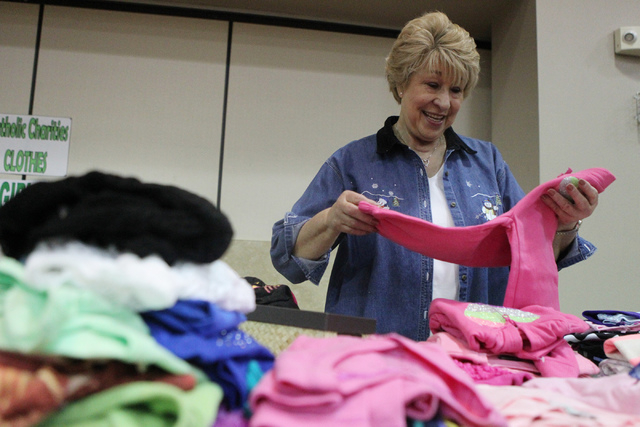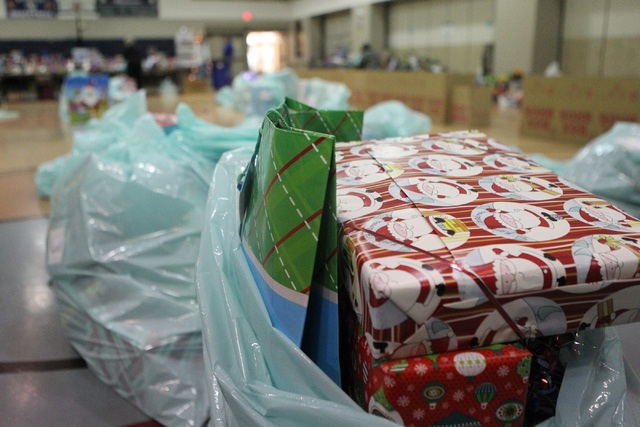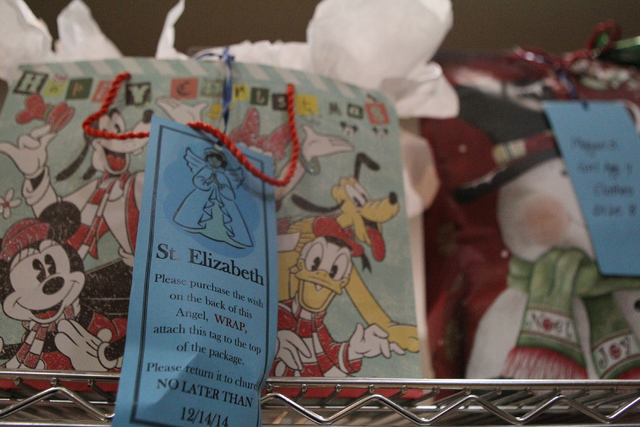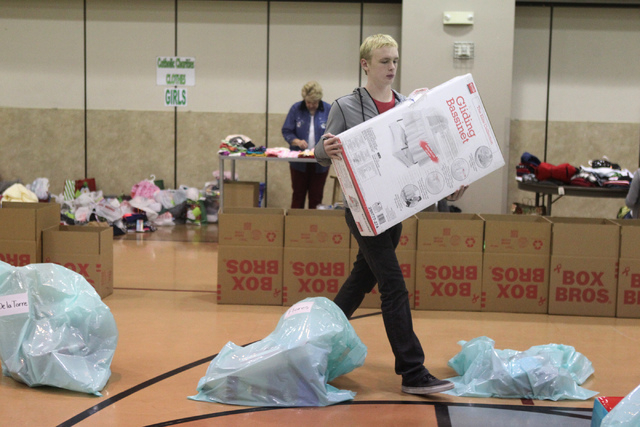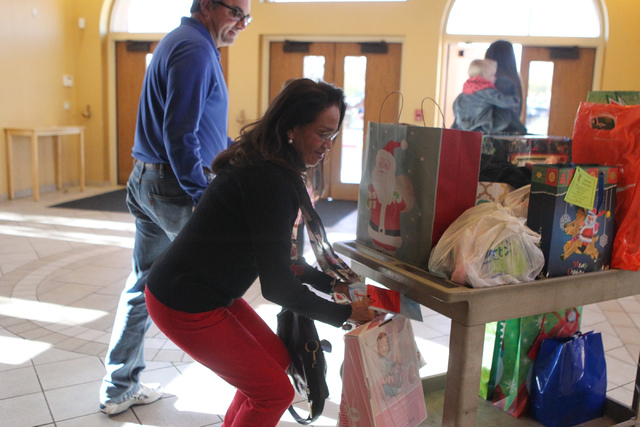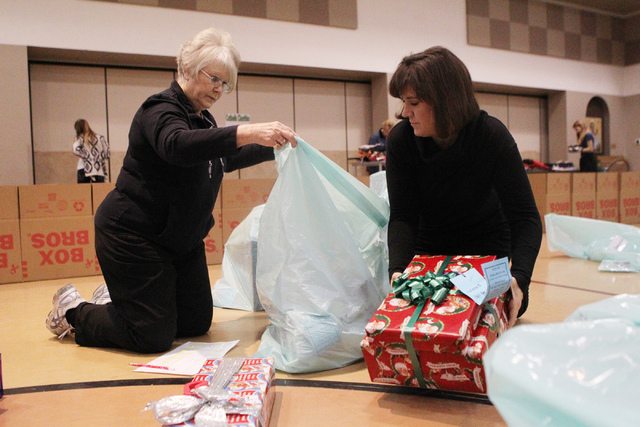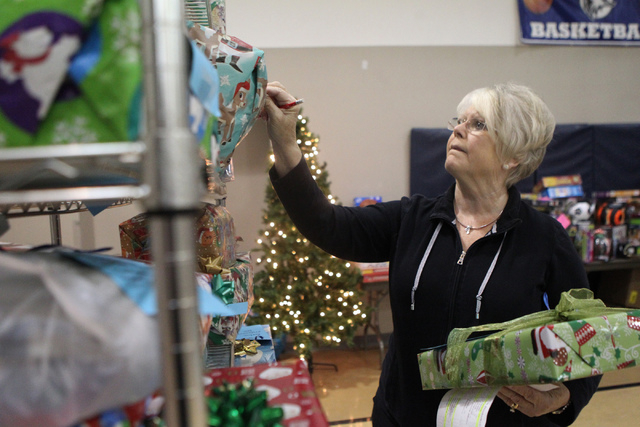Pastors balance religious, secular aspects of Christmas
Meghan Trainor, move over. Your chart-topping song “All About That Bass” just got covered by the younger staff members at Canyon Ridge Christian Church … with a few changes to the lyrics.
Check out their version on YouTube: “It’s All ’Bout That Baby at Christmas. You know: Jesus.” (Find it on YouTube at Bout That Baby.)
Its alternative take on the holiday season is just as catchy as the original and packages the church’s seasonal message in a way a younger generation can hear.
Across the valley, churches are going to great lengths to make sure the true reason for the season isn’t drowned out by advertising jingles. Each church has its own thoughts on how the secular and religious collide and coexist.
Canyon Ridge Christian Church has a good sense of the commercialism surrounding it. The staff doesn’t try to negate it. It expects it. And it’s ready to make sure its message is heard.
“For preschool and elementary pastors, our No. 1 marching order every Christmas is: The kids are going to know that Christmas is about the birth of Christ. All the trappings are fine, but we rehearse the Bible story each year. … We do offense, not defense,” says the Rev. Kevin Odor, senior pastor at Canyon Ridge.
“We always want to come up with a new way to show the timeless story,” Odor adds. “It’s a play on the gift-of-all gifts, Jesus. This year it’s all about ‘X’pecting. The ribbons on a package forming an ‘X.’ The ‘X’citement of Mary ‘X’pecting the birth of Jesus, and Mary’s sister Elizabeth ‘X’pecting the birth of John the Baptist.”
Odor asks, “What if we ‘X’pect something more than just presents?”
The church adds live animals to its life-size Nativity scene on the property. Last year there was even a camel. It sparks conversations about the display’s meaning and creates a memorable experience.
Canyon Ridge encourages each child to give a gift. Plus, each family takes home a box, fills it, and returns it to be given to the needy. Many members also participate in local charities.
“We lean in more to the family at the holidays. Most people become more reflective,” adds the pastor. “But that can expose families in danger.”
His church’s GriefShare ministry has a special evening to help people strategize how to get through the season. The same applies to alcohol and addiction ministries.
Other churches put their own spin on the theme. Here’s a look at what a few are doing.
FAITH COMMUNITY LUTHERAN CHURCH
The Rev. Craig Michaelson, senior pastor of Faith Community Lutheran Church, says, “We start when they are in preschool and Sunday school, teaching how blessed they are, that much of the world is struggling just to survive.”
“The children collect food and offerings. They want to help,” he continues. “The goal is a feeling of contentment with what they have and compassion for those who have less.”
Michaelson notes that a household that makes $25,000 a year is wealthier than 95 percent of the households in the world.
“We’re intense about this. During Christmas we always do missions, but we support different missions each month as well,” Michaelson adds.
Faith Community sends short-term missions each year. But this year, the Ebola epidemic means only money will be sent.
“We waste so much money on stuff we don’t need,” he says. “Retail holiday sales were $620 billion last year. We should be celebrating peace and joy. Instead, we focus on things we want instead of the things we have.”
“God gave us his son and we need to give to those less fortunate,” Michaelson says. “That’s where the joy should be. Children learn that people in different circumstances are worthy of our love and help. They realize how much God has blessed us.”
LIBERTY BAPTIST CHURCH
“We tell (our parishioners) Christmas is all about Jesus. Put up decorations and trees, but it’s all about Jesus. He was born and lived a perfect life. Christmas traditions all point back to Jesus,” says the Rev. Matthew Teis, executive pastor of Liberty Baptist Church and Academy.
“There is as much of a conflict between the secular and the religious as you want there to be. It is how parents choose to deal with it. If parents make a big deal out of Santa, it’s their choice,” adds Teis. “It’s all fun and good to have Santa and elves, but when the family talks about what the kids want Santa to bring them, that’s where you turn on Christian music — ‘O Holy Night,’ not ‘Jingle Bells.’ The key focus is Jesus’ birth and life. But also enjoy the fun stuff. Santa is not Satan or Satan Claus.”
The name Santa comes from St. Nicholas, who was known for his devout faith and generosity toward the needy. He lived in the fourth century and was at the Council of Nicaea in 325. Santa and St. Nick are only two of the names he’s called around the world.
“Our church hands out a small box the size of a ring box to each person — adult and child. On Sunday, Dec. 21, our parishioners return the boxes — some filled with quarters, some with a check,” Teis says. “It all goes to a church and orphanage we support in Uganda.
“On Dec. 25th,” he adds, “our culture stops to say it’s Jesus’ birth. Enjoy what our culture has done. It’s all Christmas! It’s easy. Enjoy it.”
ST. ELIZABETH ANN SETON CATHOLIC CHURCH
The Rev. Bede Wevita of St. Elizabeth Ann Seton Catholic Church has the most inclusive thoughts about Christmas.
“We have no strategies to counteract the commercialism of Christmas,” Wevita says. “It’s never been a problem liturgically. We started Advent (the four-week period preceding Christmas) at the parish mission. We have had two sessions. Even in a busy time and with rain, we had over 100 people.”
He has seen mothers at shopping centers showing their kids the Nativity; pointing out the participants — Mary, Joseph, baby Jesus, the wise men, the angel, the animals — and telling the story to their children. He sees commercialism as just a part of the season.
“As children seek for things, they also see their parents giving to other people,” Wevita says. “This is a good thing.”
St. Elizabeth Ann Seton supports an Angel Tree. Six thousand angels have been taken, each with a list of items the needy recipient wants for Christmas. That’s the positive aspect of commercialism, buying for others.
“I’m not discouraged by people selling things. It’s the Christmas season,” Wevita adds. “It’s all about giving. I wish it would continue all year long. Christmas is a time of celebration. Go home and eat. Be merry with family. It’s the season.
“The church and the world get more benefit from commercialization. There are bad effects, but it does not stop the spirit. God gave his son, now we give to others. As with the Angel Tree, people see the need of other people and give.”



